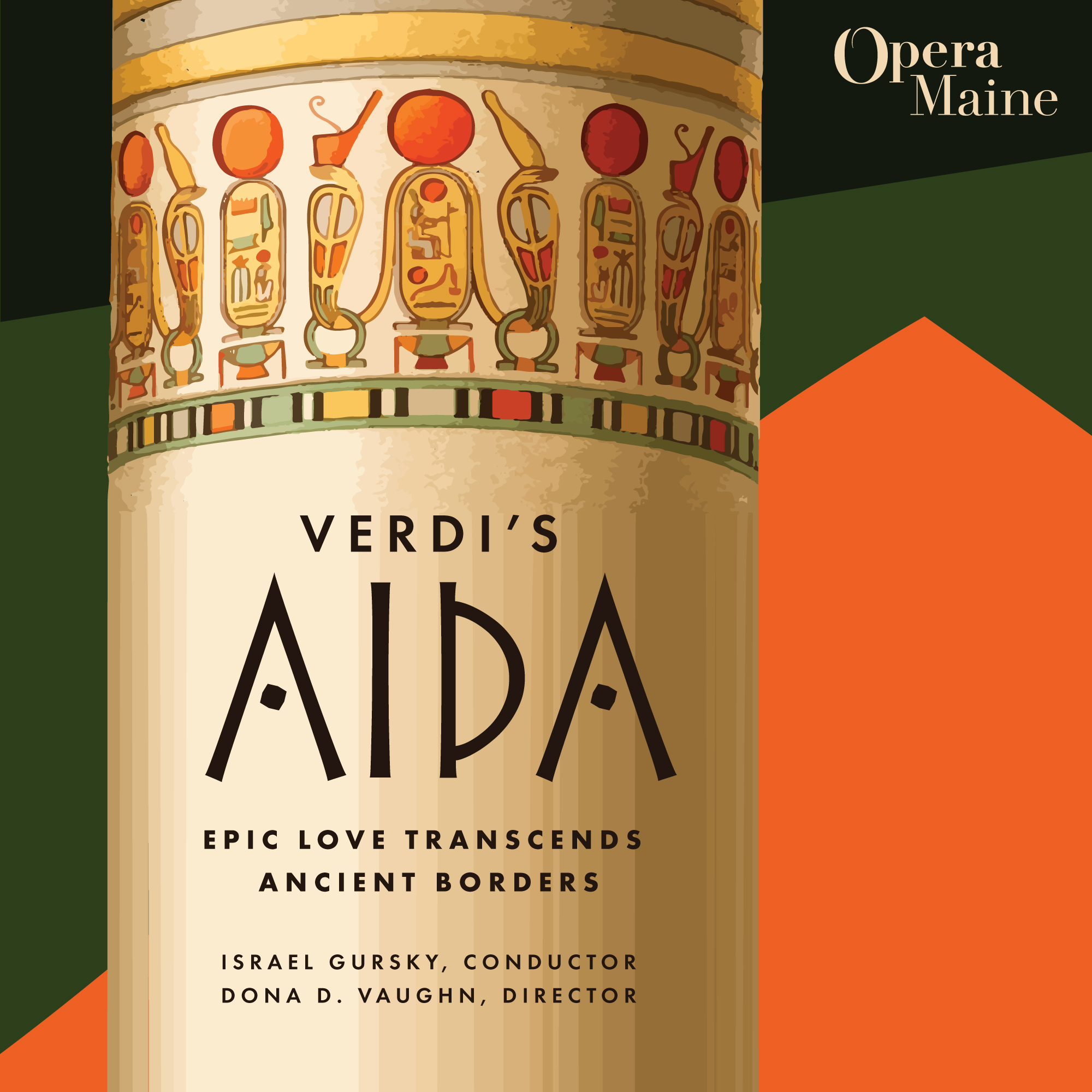Learn More About Aïda!
Aïda, one of the most popular and most performed operas of all time, was created by the great Italian composer, Giuseppe Verdi. Written in the manner of Grand Opera*, Aïda was commissioned by Khedive Ismail Pasha for the opening of his opera house in Cairo, Egypt, on December 24, 1871.
Aïda is a timeless story of love and betrayal against the backdrop of war between ancient Egypt and Ethiopia. The opera tells the story of a love triangle involving the Pharaoh’s daughter, Amneris, the Egyptian general, Radamès, and the captive Ethiopian princess, Aïda. Each of the lovers is torn by conflicting emotions and loyalties; each must make hard choices. Jealousy and betrayal, familial and patriotic duties, and the stern judgments of government and religion are dramatized through Verdi’s brilliant music.
*Grand opera is a genre of 19th-century opera that is structured in four or five acts and is characterized by large-scale casts and orchestras. The original productions involved spectacular design and stage effects with plots based on or around dramatic historic events.
Characters
Aïda – an Ethiopian princess, held captive in Egypt, in love with Radamès
Radamès – an Egyptian general, in love with Aïda
Amneris – daughter of the Pharoah, in love with Radamès
Pharoah – the King of Egypt, father of Amneris
Amonasro – Aïda’s father, King of Ethiopia
Ramfis – the Chief Priest
High Priestess
Synopsis
As the opera opens, Radamès and Ramfis learn of the impending attack of the Ethiopian army on Egypt. Radamès dreams of leading the Egyptian troops to glory, and of his love for the beautiful Ethiopian captive, Aïda, who is enslaved as a servant to the Pharoah’s daughter, Amneris. When Amneris, enters, Radamès quickly conceals his love for Aida, but Amneris suspects that someone else has won Radamès heart. On hearing about the coming conflict, Aïda is torn between her love for Radamès and her fears for her countrymen.
When the Egyptian army triumphs, the entire city celebrates the victorious return of Radamès and his troops. The Pharoah rewards Radamès by giving him his daughter’s hand in marriage. A grand procession of soldiers, priests, and captured Ethiopians includes Aida’s father, Amonasro, in disguise.
Amonasro escapes his captors and confronts Aïda, bullying her into tricking Radamès to reveal the next movements of the Egyptian army.
As Aïda and Radamès make plans to run away together, Ramfis overheard the lovers’ conversation and seizes Radamès as a traitor, while Amonasro and Aïda escape. Amneris begs Radamès to defend himself and allow her to plead for him. He refuses and stands mute before the tribunal. He is sentenced to death.
Sealed in the crypt below the temple of Ptah, Radamès awaits death, but discovers that Aïda has secreted herself there as well. Realizing there is no escape, the lovers celebrate the freeing of their souls in death, as Amneris prays for peace.
Running Time: 2.5 hours
The Opera Maine Team
Aïda marks the 29th season of fully staged opera by Opera Maine. It will also be the largest production in Opera Maine’s history with seven principal singers, an orchestra of 65 musicians, chorus of 50, and 40 supernumeraries. Under the guidance of Artistic Director Dona D. Vaughn and conductor Maestro Israel Gursky, with choreography by Veeva Banga, ancient Egypt comes alive through music, dance, and spectacle, thanks to Opera Maine’s exceptional design team: Germán Cárdenas-Alaminos, scenic design, Millie Hiibel, costume design, James Lawlor, lighting design, and Camilla Tassi, projection design.
Principle Cast
Aïda – Courtney Johnson, soprano
Radamès – Taylor Comstock, tenor
Amneris – Hyona Kim, mezzo-soprano
Amonasro – Brian Major, baritone
Ramfis – Daniel Sumegi, bass-baritone
Pharoah – Matthew Anchel, bass
Messenger – Peter Drackley, tenor
High Priestess – Alaysha Fox, soprano

